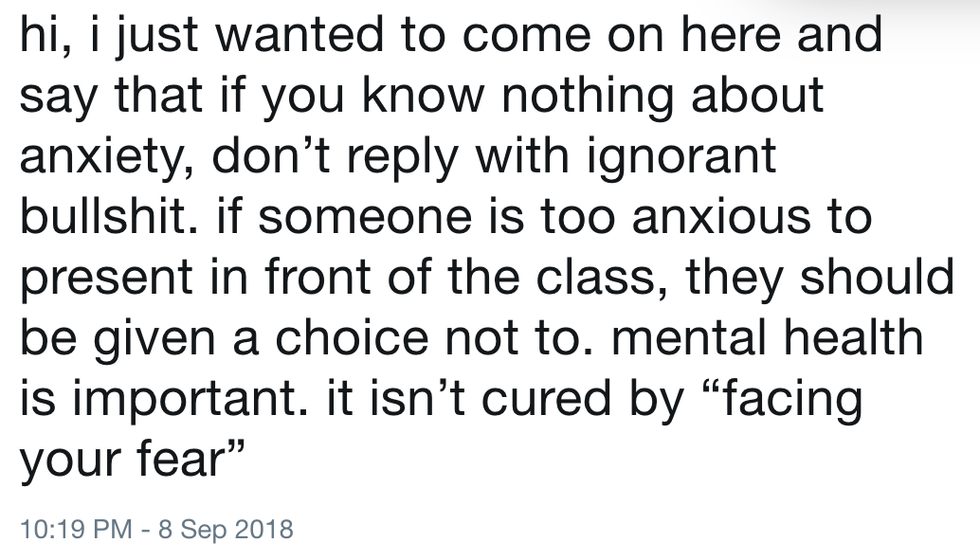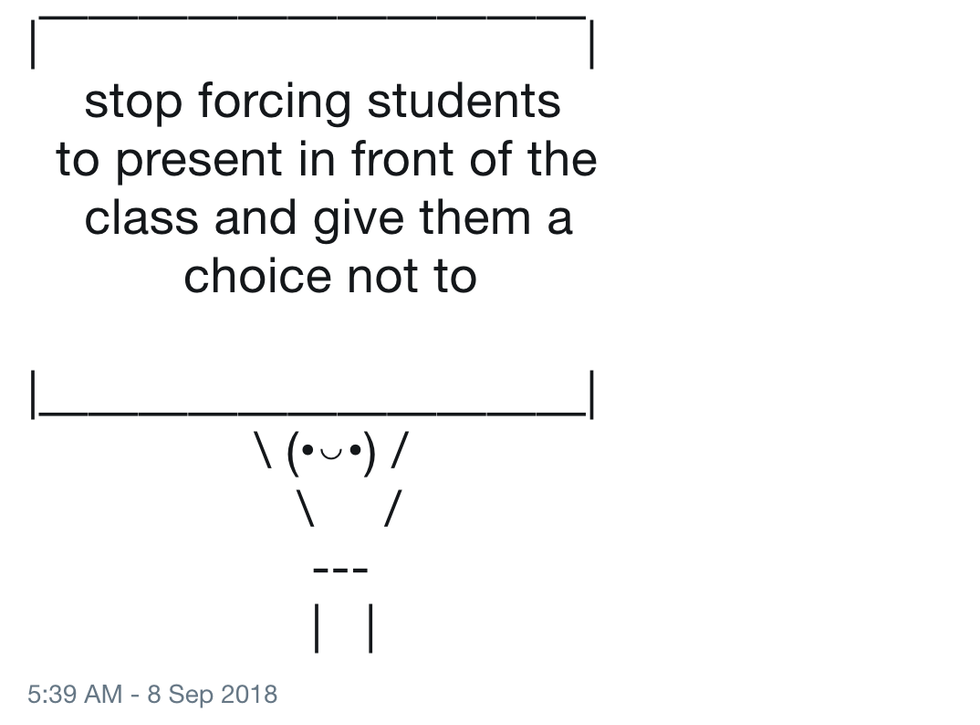Earlier this week, I was casually scrolling Twitter when I happened upon this tweet. Usually, I don't take many tweets seriously or take things on Twitter seriously. But this one pushed my buttons slightly more than others that I have seen.
For reference, the tweet reads as follows:
Her argument is valid since she mentions panic attacks that include shaking and panicking. And I am not one to invalidate any form of mental illness at all; I suffer from severe anxiety, especially when it comes to presentations.
I am a third-year college student and presentations still make me nervous, but if I was never forced to do so in middle school and high school, I would never have taken on any leadership roles that would help me get a handle on my anxiety any more than I have.
For reference, I forced myself to be a part of a high school pageant during my junior year to help me get rid of stage fright. I was also a part of my school choir and every concert helped a little, but regardless, individual presentations are terrifying. I also forced myself into a presidential club role during my senior year of high school and a role during my freshman year of college that also required speaking in front of crowds. I still get shaky during presentations and I still get sweaty palms. Often, my prepared speech gets messed up by my anxiety.
Moreover, when I raise my own hand to answer questions in class, my anxiety shoots through the roof. My heart begins to beat faster, my hands begin to sweat, and my voice gets shaky.
Which leads me to a follow-up tweet to her thread:

I don't necessarily agree. Yes, mental health is extremely important - do not get me wrong. It's my focus in Psychology. But I don't know where she's getting her information from even though she has been diagnosed by a professional, too. Contrary to her tweet, "facing your fear" actually is the closest thing to a cure we can get.
Exposure therapy, immersion therapy, and flooding are useful forms of therapy for anxiety and phobias for a reason. By using exposure therapy, the client slowly gets familiar with what gives them anxiety. Situations would be imagined and assessed where anxiety arises. Muscle relaxation is a focus during exposure therapy. Allowing yourself to get comfortable practicing speeches with your family and then your friends can be extremely helpful.
Therapy is not all that accessible for everyone, and I 100% understand that completely. But we live in a time when so many things are one click away, and therefore, resources for overcoming anxiety and coping mechanisms are so accessible. But just because something might be hard (glossophobia, the fear of public speaking, is one of the most common phobias) does not mean you should avoid it!
I loathe the idea that we should forever live in a bubble of self-doubt and be coddled. If you use your anxiety to your benefit, it can help you grow as a person. Being stagnant is never much fun, and self-growth can really make you feel better as a person.




















